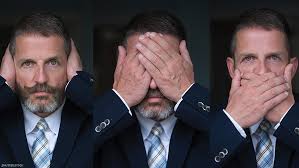Source: hivplusmag.com
I had never been to Washington, D.C., before April 2019, when alongside hundreds of other HIV activists, I stormed the Capitol for the 26th annual AIDSWatch, the nation’s largest annual HIV advocacy event.
AIDSWatch is organized by AIDS United, the Treatment Access Expansion Project (TAEP), and the United States People Living with HIV Caucus (HIV Caucus) and presented by The Elizabeth Taylor AIDS Foundation. The event is an opportunity for people to march directly into congressional offices to share personal stories with our elected leaders about how HIV impacts our lives, to demand better access to care and treatment, and to educate them about the impeding efforts to end this epidemic. And you know what? It works.
Protecting our health care is up to us. We’ve always known that. Since the beginning of the AIDS crisis, it has been people living with HIV and those of us most at risk of becoming HIV-positive who have crowded the streets to demand government funding and research to end HIV. We’re continuing that fight today, but we’re no longer as alone as we once were.
Where once we had to beg for support from politicians, AIDSWatch has been changing that. And in the weeks following AIDSWatch, New York’s high-profile congresswoman, Alexandria Ocasio-Cortez, rallied other representatives to hold an oversight hearing surrounding rising costs of Truvada as PrEP.
There I was honored to bear witness to the initial meeting in which James Krellenstein and Nick Faust (activists at PrEP4All, the organization that spearheaded investigations into PrEP pricing), as well as other HIV activists from organizations like GMHC and Housing Works, sat down with Ocasio-Cortez’s chief of staff to discuss the lack of access to affordable treatment — not just for HIV meds, but for all drugs on the market.
After the hearings, Gilead agreed to give the Centers for Disease Control and Prevention up to 2.4 million bottles of Truvada each year to go to uninsured Americans at risk for HIV. The agreement goes through 2029, and if the Food and Drug Administration approves it for this use, the agreement will extend to its newest drug, Descovy, which in recent studies proved as effective as Truvada when taken as PrEP.
The oversight hearing was just the first step in a very long journey to holding the pharmaceutical industry accountable for price inflation. For many of the legislators at the three-hour hearing, it was clearly the first time they’d spoken about HIV and PrEP. Rep. James Jordan from Ohio voiced a common confusion: “What’s the difference between PrEP and Truvada?”
PrEP stands for pre-exposure prophylaxis, an HIV prevention protocol that relies on utilizing antiretroviral medication to prevent rather than treat HIV. Truvada was developed to treat HIV, but its almost miraculous nature as the first medication shown to prevent HIV when taken daily as PrEP (or even after sex as PEP, post-exposure prophylaxis) has been confirmed in numerous clinical trials. Although Truvada currently remains the only drug approved by the FDA for PrEP, others are in the pipeline (and Descovy will likely be approved this year or next).
For me, what was even more remarkable than witnessing Congress speak about HIV was seeing familiar faces of HIV activists from around the country. Among them were renowned HIV activists whose work has already changed the world, including Tami Haught, the champion of anticriminalization efforts, and Peter Staley, a member of ACT UP NY in the 1980s and ‘90s who founded Treatment Action Group and held politicians’ feet to the fire to fund HIV treatment research. Actions by activists like Haught, Staley, and thousands of others — many who unfortunately didn’t survive to see this day — ultimately led to the modern HIV treatment we have now, where living with HIV is manageable and HIV transmission can be prevented by a once-a-day pill.
Like all millennials, I’m not old enough to remember the early days of the AIDS crisis. Yet I’ve lived with the ghosts of a generation lost, as HIV stigma and AIDS phobia continue haunting gay and bi men. I’ve heard survival stories from those who live with HIV and related illnesses and those who suffered inconceivable losses. But I’m also lucky enough to have friends who teach me what being poz means in 2019 — when one can become undetectable within weeks of being diagnosed HIV-positive, where being virally suppressed means it’s virtually impossible to transmit HIV to anyone else. That stigma-busting truth gives me hope for the future when I think about how far we’ve come and the fight still ahead of us. If ever there is a time to come together, it is now.
Our health care is under attack by an administration that seems determined to undermine decades of progress. Throughout the world, and in our own country, people are dying not because appropriate medication doesn’t exist, but because they cannot access it (due to structural, systemic, or financial barriers).
History shows that liberation often starts with anger. It starts by shouting the truth so loud that our legislators can’t help but hear it.
The success of this year’s AIDSWatch and the subsequent congressional oversight hearings on drug pricing show our representatives are listening to the activists among us. Don’t stop now. Make your voice heard. This can be a turning point for America. Let’s come together and fight for access to care. Let’s seek rights that go beyond health insurance, but also include access to affordable medication.
Keep talking to your representatives. Keep them on their toes. When people die because they can’t afford their medication in one of the richest countries in the world, it makes me angry. It makes me want to fight. How about you?
